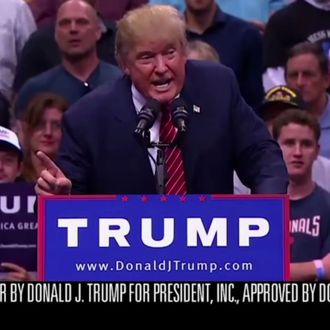
Most political professionals have probably taken Donald Trump’s oft-expressed disdain for paid political ads with a grain of salt. For one thing, he’s been known to exaggerate now and then. For another, there’s more than a grain of truth in his argument that earned media matters most in presidential general elections, because there is so very much of it.
But it should serve as a warning to Team Trump that one of the political scientists most associated with disrespect for paid ads in presidential elections, Lynn Vavreck, also insists that letting one’s opponent run uncontested ads is a path to a slow, but sure, political death.
Mr. Trump has used unconventional campaign tactics and has relied on free media to get his messages out. All of this may render advertising less relevant.
A study estimated that most of the impact of an ad in a presidential election is gone within a day or two of its airing (I am one of the authors of this paper).
Even though the effects from an ad imbalance are small and go away fast, candidates cannot allow them to pile up. Election Day may be far away, but candidates may still want to match their opponents’ daily advertising in the months before the vote because they care about publicly released news polls that convey information to voters — and donors — about their viability and the closeness of the race.
Vavreck is making two interrelated points here: Unopposed ads do indeed shape impressions of candidates, and those impressions affect polling numbers which in turn affect actual voting in the end.
Considering the current Republican freak-out over a slump in Trump’s polling numbers, even as HRC’s paid-ad assault on Trump has barely begun, I’d say there’s a good chance weeks and weeks of unopposed ads could have a pretty dramatic effect on GOP morale.
Now, Vavreck goes on to note that Trump did more paid advertising during the nominating campaign than people seem to realize, and thus may perhaps wind up following the conventional wisdom of keeping up with his opponent on the airwaves after all. What she may not have factored in was the possibility that Trump could not afford paid ads.
In the end, if Trump’s going to run a competitive campaign, he really needs super-pac donors to get onboard and open the checkbooks. It does not look like the Koch Brothers are going to be available (though they are funding some field operations that may prove indirectly useful), and Karl Rove is publicly exasperated with the mogul’s strategy. If Clinton is free to whale away at Trump for an extended period of time, the race could become all but unwinnable for Republicans, even if their nominee learns that saying outrageous things and counting on the media to give him coverage for them is not ultimately a formula for success.






























